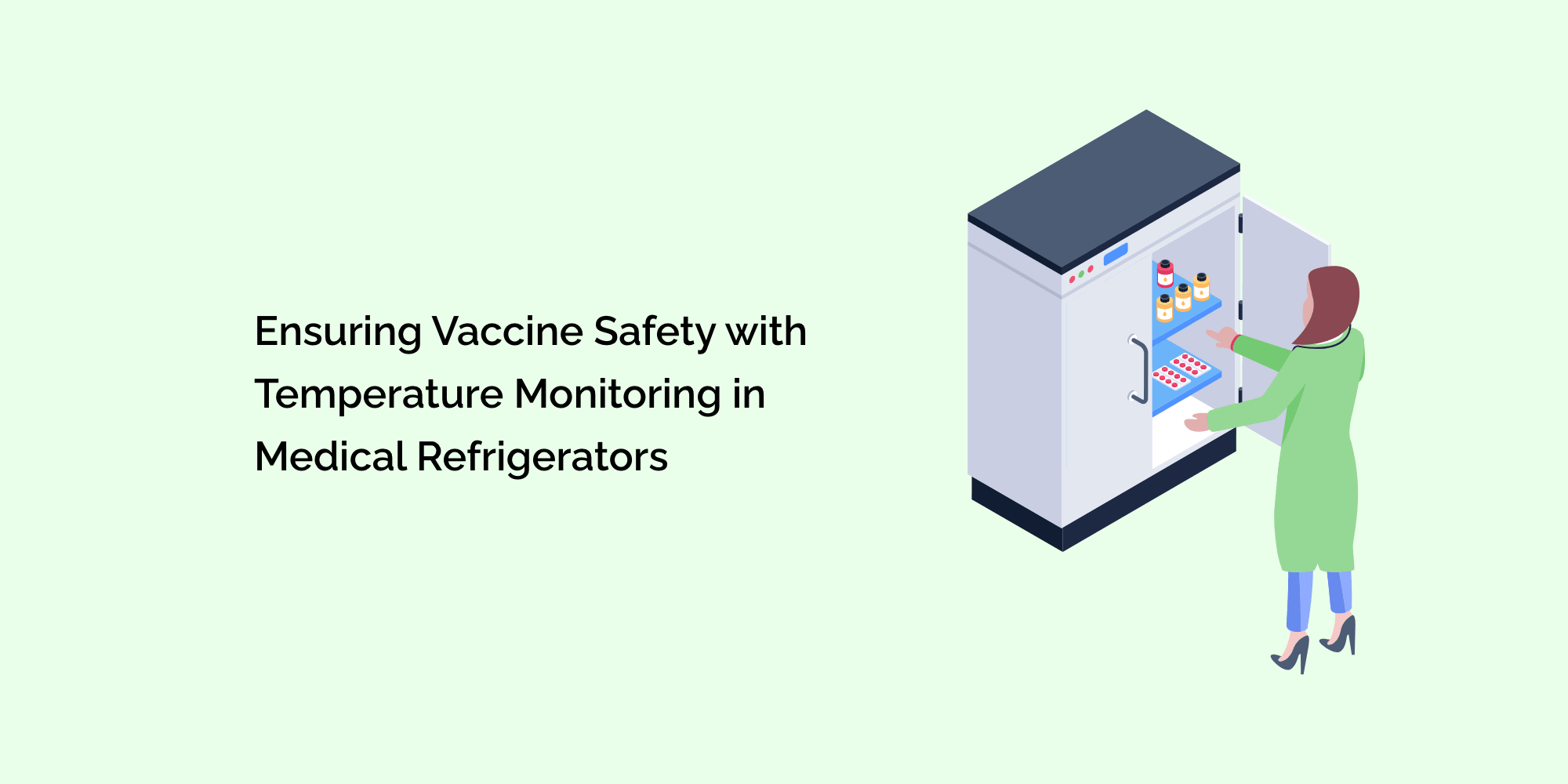Temperature control is a critical factor in ensuring the safety and efficacy of vaccines. Vaccines are sensitive biological products that require strict temperature control to maintain their potency and effectiveness. Medical refrigerators play a vital role in storing vaccines, but without proper temperature monitoring, there is a risk of temperature deviations that can compromise vaccine safety.
In this blog, we will explore the importance of temperature monitoring in medical refrigerators, the risks associated with temperature fluctuations, the impact on vaccine efficacy, and the technologies available to ensure vaccine safety. By understanding the significance of temperature monitoring, healthcare providers can take proactive measures to safeguard vaccine integrity and protect public health.
The Importance of Vaccine Storage and Temperature Control:
Vaccines are delicate biological products that contain active ingredients that trigger an immune response. To maintain their effectiveness, vaccines must be stored and transported within a specific temperature range recommended by the manufacturer, typically between 2°C and 8°C (36°F and 46°F). Deviations from this range can result in vaccine potency loss, rendering them ineffective and potentially harmful when administered.
Risks of Temperature Fluctuations in Medical Refrigerators:
Medical refrigerators are designed to provide temperature-controlled storage for vaccines and other pharmaceuticals. However, without proper temperature monitoring, there are risks of temperature fluctuations that can compromise vaccine safety:
-
Vaccine Potency Loss: Temperature fluctuations outside the recommended range can lead to a loss of vaccine potency. Vaccines that have been exposed to excessive heat or freezing temperatures may lose their effectiveness, leaving individuals vulnerable to vaccine-preventable diseases.
-
Reduced Immunization Efficacy: Vaccines that have been stored improperly or exposed to incorrect temperatures may not provide the desired immune response when administered. This can result in reduced immunization efficacy and increased susceptibility to infectious diseases.
-
Wasted Vaccine Supply: Temperature deviations that go unnoticed can result in wasted vaccine supplies. When vaccines are exposed to unfavorable temperatures, they may need to be discarded, leading to financial losses and potentially compromising immunization programs.
-
Risk of Vaccine Administration Errors: Healthcare providers rely on properly stored vaccines to deliver effective immunizations. If vaccines are stored at incorrect temperatures, healthcare workers may unknowingly administer compromised vaccines, compromising patient safety and public health efforts.
The Importance of Temperature Monitoring in Medical Refrigerators:
Temperature monitoring in medical refrigerators is essential to ensure vaccine safety and maintain their potency. Continuous temperature monitoring provides several key benefits:
-
Early Detection of Temperature Deviations: Continuous temperature monitoring systems provide real-time data on temperature fluctuations. This allows healthcare providers to detect deviations promptly, enabling immediate corrective actions to be taken before vaccines are compromised.
-
Alerting and Notifications: Temperature monitoring systems can be equipped with alarms and notifications that alert healthcare providers when temperature deviations occur. This ensures immediate attention and reduces the risk of prolonged temperature excursions.
-
Compliance with Regulatory Requirements: Healthcare facilities must comply with regulatory guidelines and standards for vaccine storage. Continuous temperature monitoring provides documentation and evidence of adherence to these requirements, ensuring compliance during audits and inspections.
-
Data Logging and Reporting: Temperature monitoring systems often include data logging capabilities, allowing healthcare providers to record and track temperature data over time. This information can be used for analysis, trend identification, and reporting purposes.
Technologies for Temperature Monitoring in Medical Refrigerators:
Several technologies are available for temperature monitoring in medical refrigerators:
-
Digital Data Loggers: Digital data loggers are small electronic devices that record and store temperature data at regular intervals. They provide a convenient and cost-effective solution for monitoring temperature in medical refrigerators.
-
Wireless Monitoring Systems: Wireless monitoring systems use sensors placed inside medical refrigerators to continuously measure and transmit temperature data to a central monitoring system. This allows for real-time monitoring and alerts in the event of temperature deviations.
-
Cloud-Based Monitoring Platforms: Cloud-based monitoring platforms collect and store temperature data from medical refrigerators. These platforms provide healthcare providers with easy access to temperature data, alerts, and reports from any location with internet connectivity.
-
Temperature Monitoring Apps: Some temperature monitoring systems offer mobile applications that allow healthcare providers to monitor and receive temperature alerts on their smartphones or tablets. This enables convenient and remote temperature monitoring.
Best Practices for Vaccine Storage and Temperature Monitoring:
To ensure vaccine safety and maintain their potency, healthcare providers should follow best practices for vaccine storage and temperature monitoring:
-
Proper Vaccine Handling and Storage: Adhere to vaccine handling and storage guidelines recommended by vaccine manufacturers and regulatory agencies. This includes proper vaccine placement, organization, and regular inventory checks.
-
Regular Temperature Monitoring: Implement continuous temperature monitoring in medical refrigerators to ensure real-time monitoring and early detection of temperature deviations. Set temperature alarm thresholds to trigger alerts when temperature excursions occur.
-
Routine Calibration and Maintenance: Regularly calibrate temperature monitoring equipment to ensure accurate temperature measurements. Perform routine maintenance checks to confirm proper functioning of medical refrigerators and monitoring systems.
-
Staff Training and Education: Educate healthcare staff on the importance of temperature monitoring, proper vaccine storage, and response protocols for temperature deviations. Ensure that staff members are trained to interpret temperature data and take appropriate actions.
-
Documentation and Record-Keeping: Maintain accurate records of temperature monitoring activities, including temperature logs, calibration records, and corrective actions taken. These records are crucial for audits, compliance, and traceability.
Conclusion:
Temperature monitoring in medical refrigerators is crucial for ensuring the safety and efficacy of vaccines. Continuous temperature monitoring enables early detection of temperature deviations, minimizing the risk of vaccine potency loss and compromised immunizations. By implementing technologies such as digital data loggers, wireless monitoring systems, and cloud-based platforms, healthcare providers can proactively safeguard vaccine integrity.
Following best practices for vaccine storage and temperature monitoring, including proper handling, routine calibration, and staff training, enhances vaccine safety and protects public health. Let us prioritize temperature monitoring in medical refrigerators to ensure the efficacy of vaccines and contribute to successful immunization programs worldwide.








